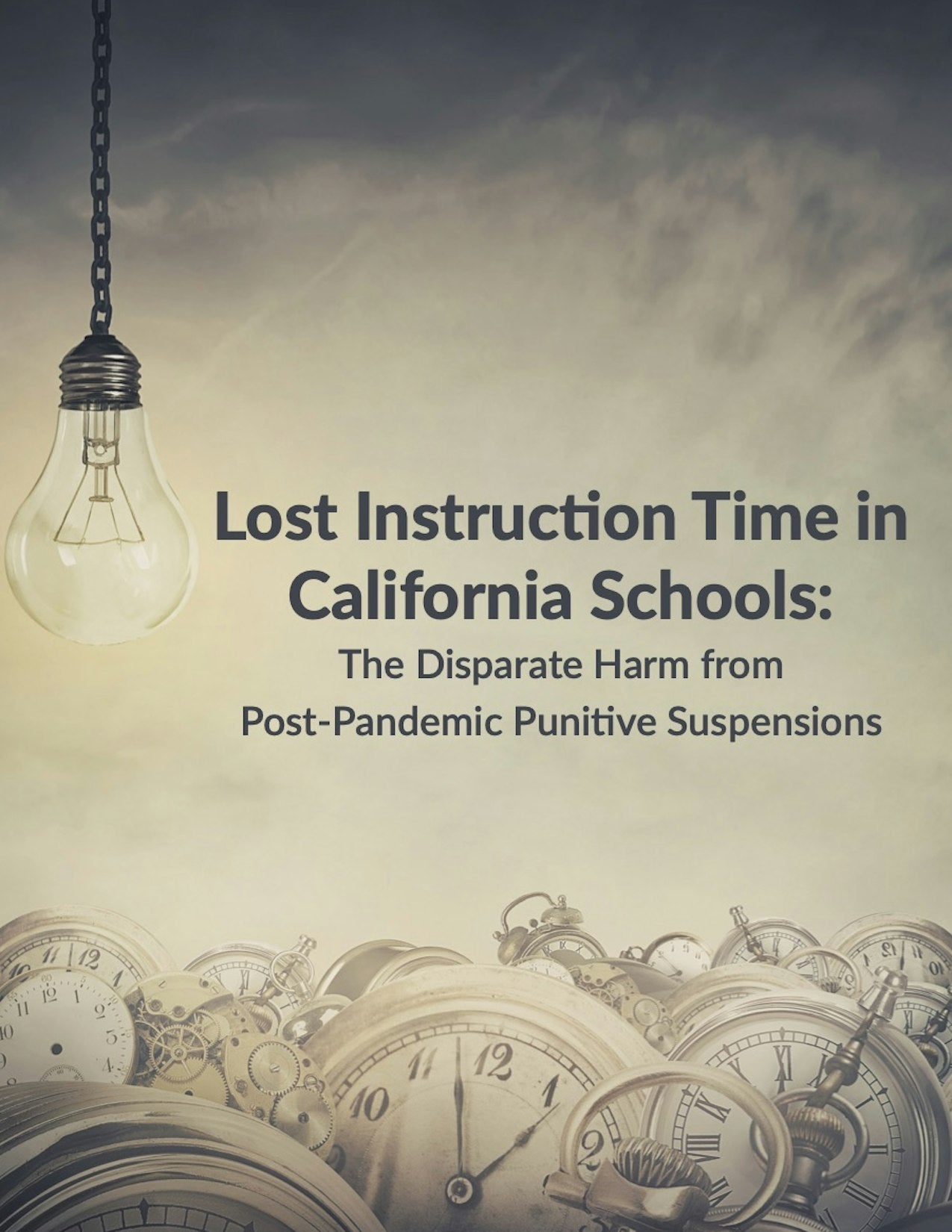Findings underscore excessive punishment of homeless and foster youth
The two groups of children with the most unstable home environments – foster youth and those experiencing homelessness – are the two groups that educators are most likely to send home by meting out punitive “out-of-school” suspension, according to new research published by the UCLA Civil Rights Project/Proyecto Derechos Civiles and the National Center for Youth Law.
“School administrators need to ask themselves what educational or community benefit is achieved when we punish homeless and foster children by sending them home,” says Ramon Flores, Ph.D. candidate in education at UCLA and co-author of the report. “For homeless and foster youth, when they are suspended out of school, the consequences may be grave.”
The new research report, “Lost Instruction Time in California Schools: The Disparate Harm from Post-Pandemic Punitive Suspensions,” analyzes CDE data sources to provide a detailed review of how suspensions directly contribute to disparities in learning opportunities for students in foster care or experiencing homelessness, as well as along the lines of race and disability in every California school district. The report is the first to highlight how post-COVID suspensions in 2021–2022 added to the pandemic’s harmful impact of instructional loss, especially for students from “high-needs” groups most harmed by the pandemic.
“Too little attention has been paid to the disparate impact of punitive responses to foster and homeless children,” says Daniel Losen, report co-author and senior director of education at the National Center for Youth Law.
Disturbingly, the research finds that African American children in the foster system are being denied an opportunity to learn, at a rate of 121 days of lost instruction per 100 enrolled. African American children in these two groups are losing instruction at a rate that is 7 to 12 times higher than the state average for all students (10 days of lost instruction per every 100 students).
“We know from our other studies, investigations, and direct work with school districts that despite the important efforts to restrict such punishment for merely disruptive behaviors, these students are still sent home in high numbers for other minor forms of misconduct, including use of profanity and vulgarity,” Losen added.
The new research also shows that in 2021–2022, students across California lost more than half a million days of instruction due to out-of-school suspensions, a slight decline statewide from previous years. Yet the findings describe high rates of punishment that have increased dramatically post-pandemic in particular districts. Despite the slight statewide decline, many districts increased suspensions and show widening racial/ethnic disparities, including two districts that are currently under agreements with a federal civil rights enforcement agency.
The report also identifies school districts that appear to have made some progress in reducing school suspensions. For example, the rates for the Los Angeles Unified School District, the first California school district to prohibit suspensions for disruptive behavior or willful defiance, are notable for how low they are for each racial/ethnic group and for students with disabilities (IDEA). LAUSD’s rates declined from 2018–2019 for all students, including African Americans, Latinx, and students with disabilities (IDEA).
“While the LAUSD is far from perfect, their progress stands as an example that other large school districts can learn from in reducing out-of-school suspensions,” adds Losen.
Although the study highlights the need for increased investments to help improve school climate and reduce rates of disciplinary exclusion, the analysis also suggests some districts have policies that lack sufficient educational justification. Others may be providing too few supports for students and teachers, or ignoring well-established research on more effective ways to respond to student misconduct that do not entail shutting them out of the schoolhouse.
The report lists recommendations for improving the accountability for school climate including calling for more comprehensive discipline data reporting and greater oversight of district practices to ensure that harmful, counter-productive punishments are eliminated.
“Lost Instruction Time in California Schools: The Disparate Harm from Post-Pandemic Punitive Suspensions,” is co-authored by Ramon T. Flores, graduate student researcher at the Center for Civil Rights Remedies (CCRR), an initiative of the Civil Rights Project/Proyecto Derechos Civiles (CRP), and Daniel J. Losen, former director of CCRR and current senior director of education at the National Center for Youth Law.
Spreadsheets detailing discipline trends for every school district in California are available upon request and will be posted for download on the release date. For further questions about the report content please contact Daniel J. Losen at 617-285-4745 or dlosen@youthlaw.org.
